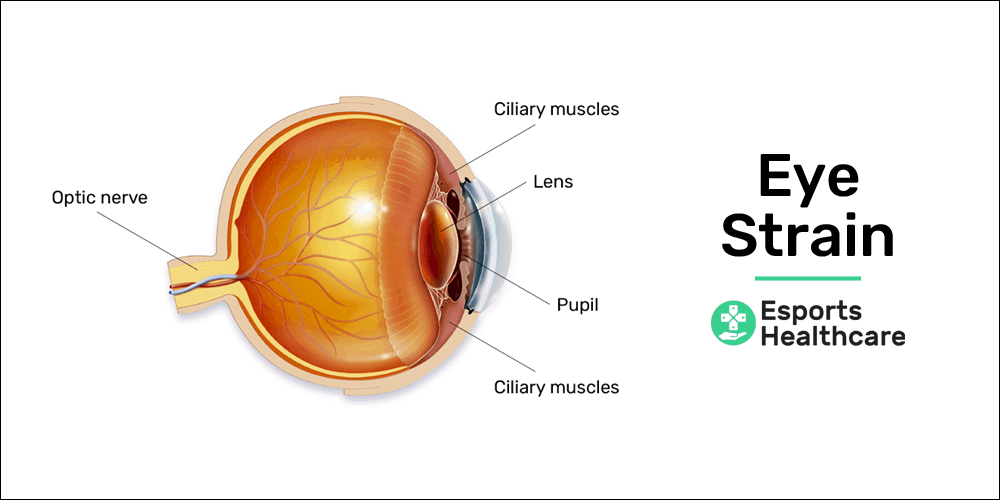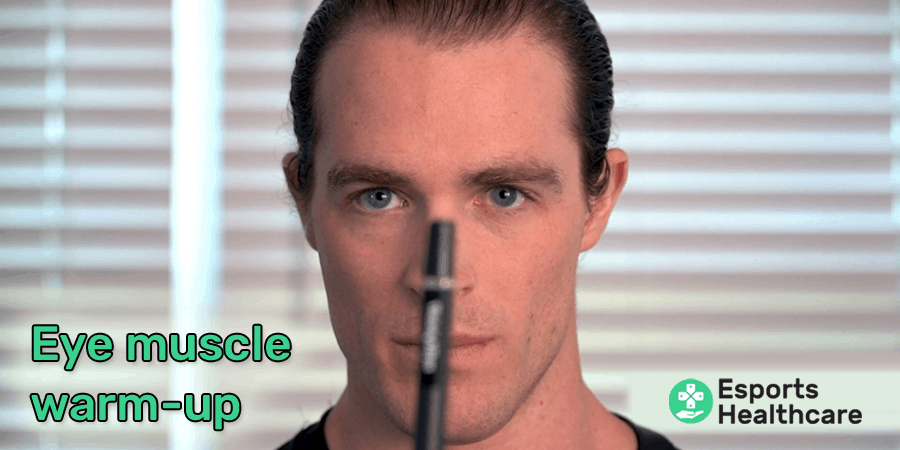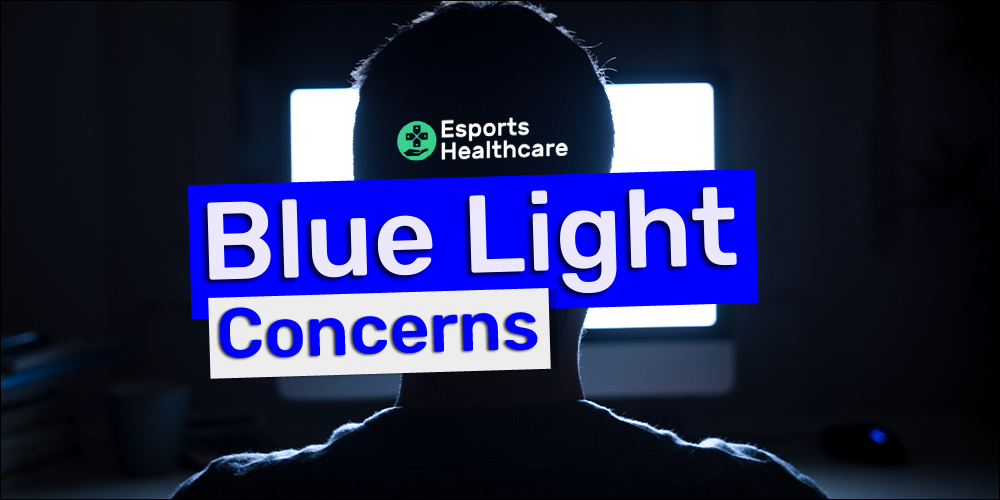Eye Health
Common ailments related to the eyes
Below is a list of 3 common ailments that may be related to eye health. Click any of the names to read a brief background on that specific ailment. Each of the ailments has its own dedicated page with all the information you’ll need to understand the ailment, to prevent it, or even to rehabilitate the ailment if it has occurred.
Simply stated, eye strain is the most common ailment for all gamers from the most casual gamer to the most intense competitor. Of course, this ailment is even more common for those participating in esports due to the excessive amount of time spent looking at a monitor.
Eye strain is a condition that occurs after long hours of strenuous activity for the muscles in and around your eyes. For gamers, this will occur after prolonged screen time which includes short, rapid movements of the eyes and focus only on the monitor(s) in front of you.
Eye strain is exactly what it sounds like. After staring at your screen for hours on end, the muscles in and around your eyes become irritated or strained. There are muscles on the outside of your eyes for eye movement, and there are muscles inside your eyes to contract or relax the lens and pupil. Each of these muscles have the potential to become strained.
Tension-type headaches are considered secondary headaches. In other words, they are not truly pain in the head (e.g., the brain, its protective sheaths, or the skull). Instead, muscles of the upper back, neck, head, and face refer pain to different regions of the head.
Commonly, tension develops in the muscles of the upper back and neck when posture is poor. For gamers, this usually occurs when the head is leaning towards the monitor and the shoulders are rounded forward—a condition known as upper crossed syndrome.
Migraine headaches are true, primary headaches affecting the brain and its surrounding tissues. There are different theories about migraines, but one of the more widely accepted theories describes a phenomenon called cortical spreading depression.
Note: This information is based on a well-researched theory. This theory is currently the best available. As new research is published, this information will be updated and changed, if necessary.





